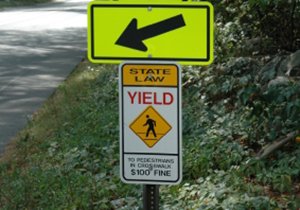
Understanding How Helmet Use Affects Your Claim
If you’ve ever been involved in a bicycle accident, you know how quickly the situation can escalate from a simple ride to a serious injury. What many cyclists don’t realize is that wearing a helmet—or not wearing one—can influence how fault is determined and how much compensation you might receive. Even if someone else caused the accident, your actions may be brought into question. In California, comparative negligence laws allow insurance companies and courts to evaluate your role in the crash, including your choice to wear safety gear. While you have every right to ride without a helmet if you’re over 18, choosing not to wear one can shift part of the blame your way, especially if you suffer a head injury. It’s not just about injury prevention; it’s also about how your case is interpreted legally.
The Legal Implications of Helmet Use
You might assume that the person who hit you bears full responsibility, but that’s not always how it plays out in court or during insurance negotiations. If your injuries could have been reduced by helmet use, an insurer may argue that you contributed to your harm. This argument, known as “comparative fault,” can lead to a reduced settlement or award. For instance, if you’re found to be 20% responsible due to not wearing a helmet, your compensation could be lowered by that percentage. That doesn’t mean you can’t recover damages—it means your behavior becomes part of the legal conversation. By wearing a helmet, you give yourself stronger footing to pursue full compensation, free from arguments that your own choices made your injuries worse.
Perception and Jury Influence Matter
When your case reaches a courtroom, or even during settlement discussions, how you’re perceived matters. Jurors and insurance adjusters are human, and they often respond to the image of a responsible cyclist who takes safety seriously. If you’re seen as someone who takes precautions, such as wearing a helmet, it’s easier to win their sympathy and trust. On the other hand, if they view your actions as careless, it could weaken your case. This isn’t about blaming the victim—it’s about how decisions are interpreted through legal and emotional lenses. A helmet won’t stop all injuries, but it can change how your actions are judged and potentially increase the compensation you’re able to recover.
Medical Evidence and Helmet Impact
From a medical standpoint, helmets do more than just reduce the risk of severe head trauma—they also shape how your injuries are evaluated by doctors and experts involved in your case. Medical professionals often assess the presence or absence of a helmet when analyzing the extent of your injuries and what could have been prevented. Their findings become part of the evidence used in your claim. If they state that your condition might have been less severe with a helmet, that becomes a talking point for the defense. Conversely, if you were wearing one and still sustained significant injury, it underscores the severity of the crash and the fault of the other party. That kind of medical clarity can give your claim more strength and urgency.
Let Legal Professionals Help You Through It
The aftermath of a bike accident can be overwhelming to handle. Between physical recovery, insurance calls, and legal confusion, the stress builds quickly. This is when an experienced attorney becomes invaluable. Whether you were struck by a car, involved in a dooring incident, or suffered a crash due to poor road conditions, you need someone who understands how helmet use, medical records, and liability all connect. Don’t let technicalities affect your right to fair compensation. If you’ve been injured in a bicycle accident and need support, contact Bonnici Law Group at (619) 870-0181 to talk to someone who can walk you through your legal options and help you build a stronger case.
 Fred has thousands of miles of cycling under his belt.
Fred has thousands of miles of cycling under his belt.







 1620 5th Avenue
1620 5th Avenue 1620 5th Avenue,
1620 5th Avenue,